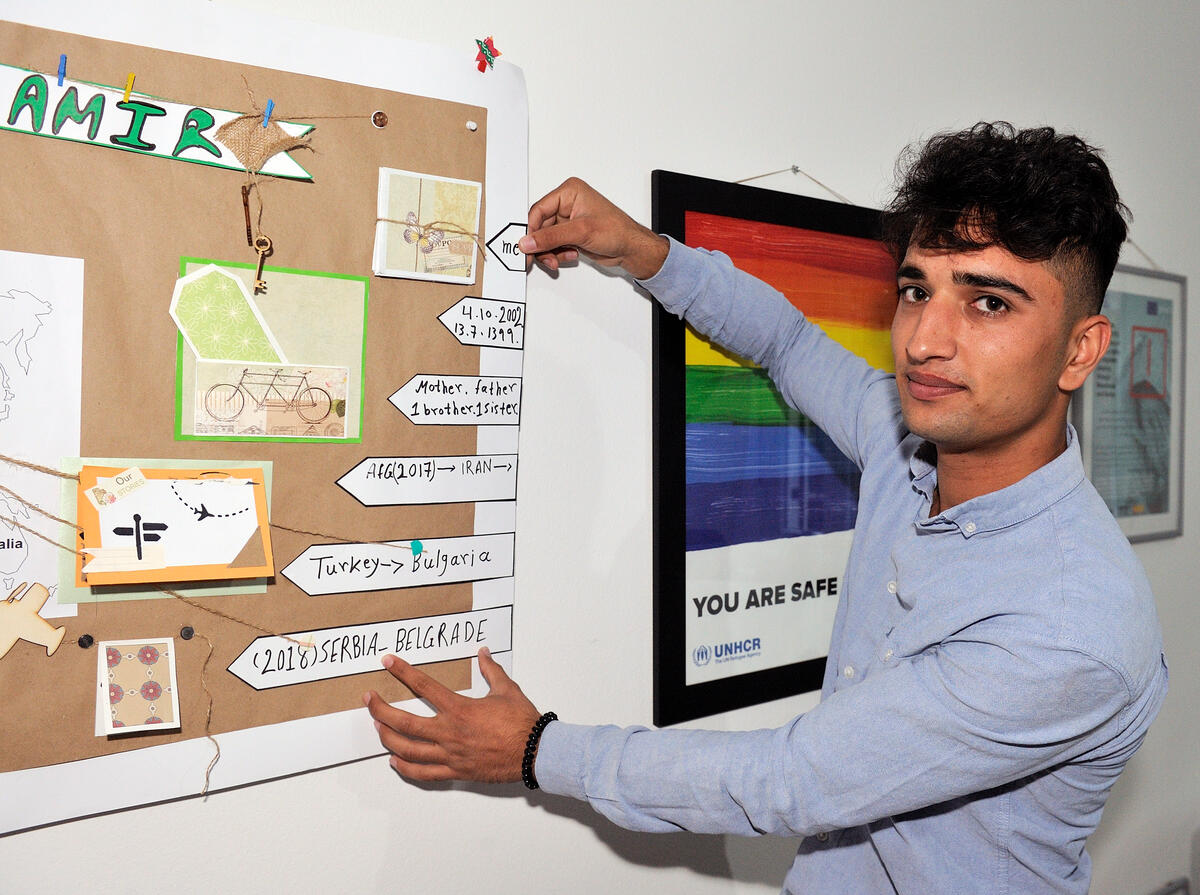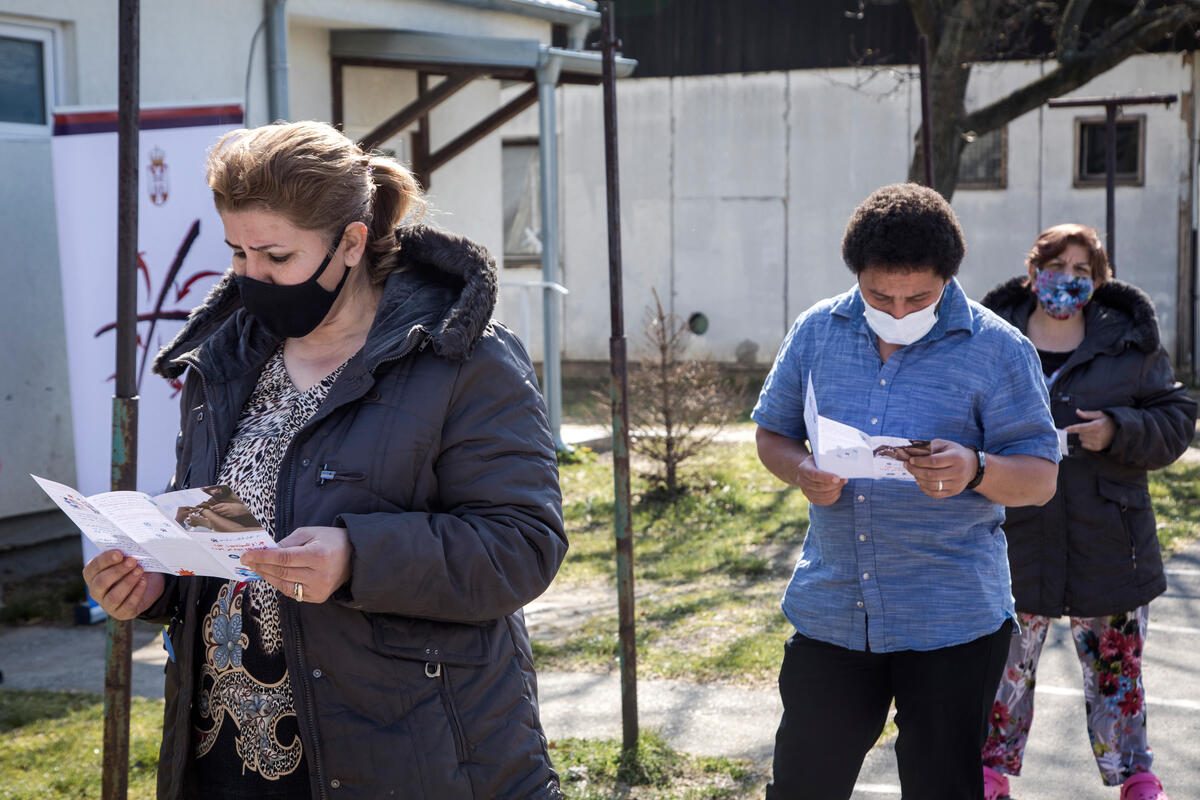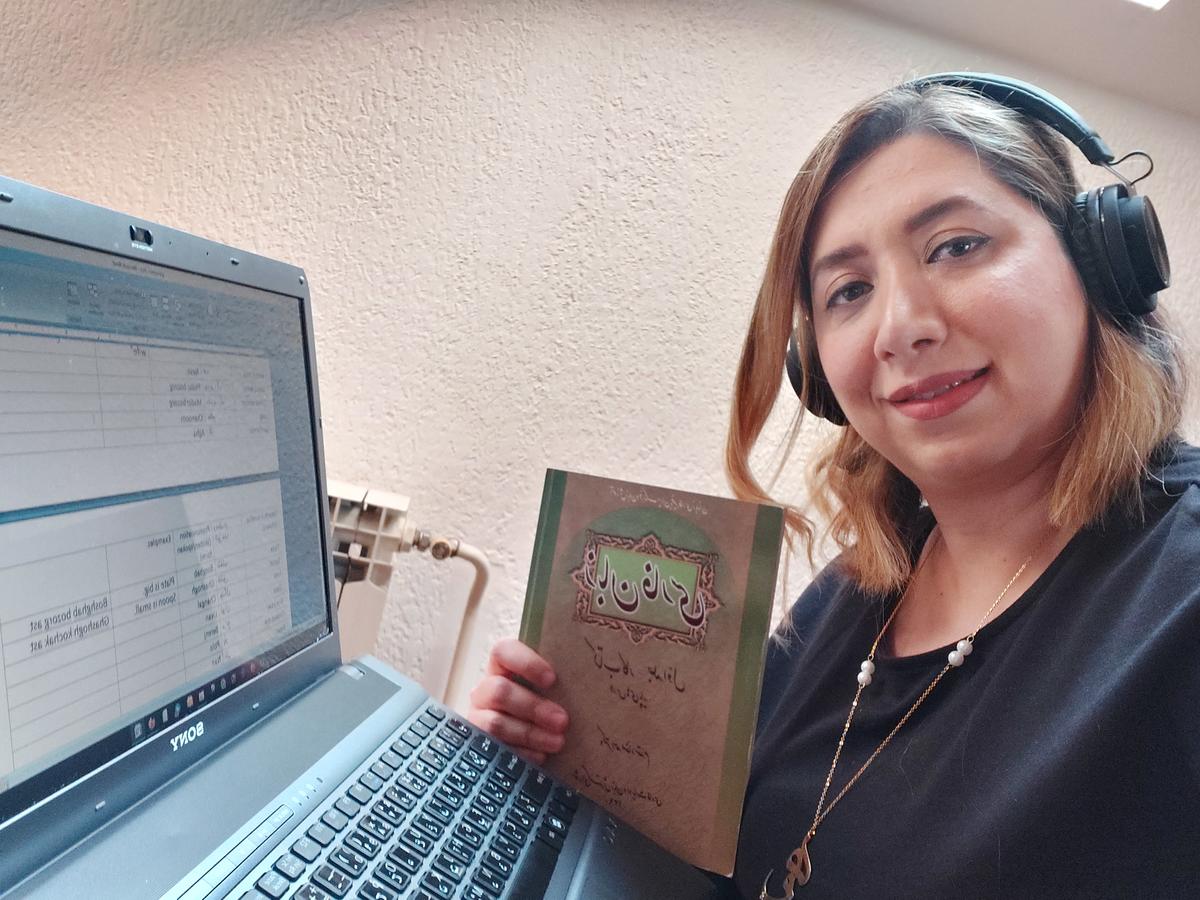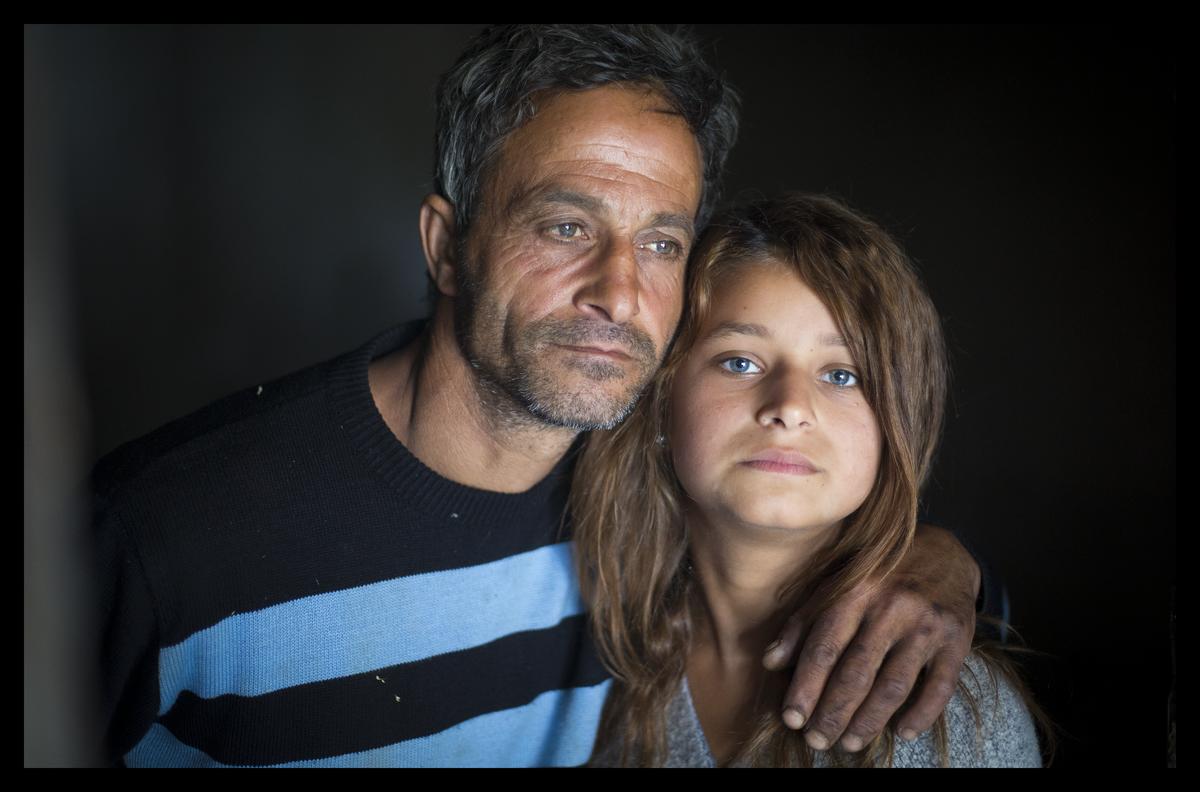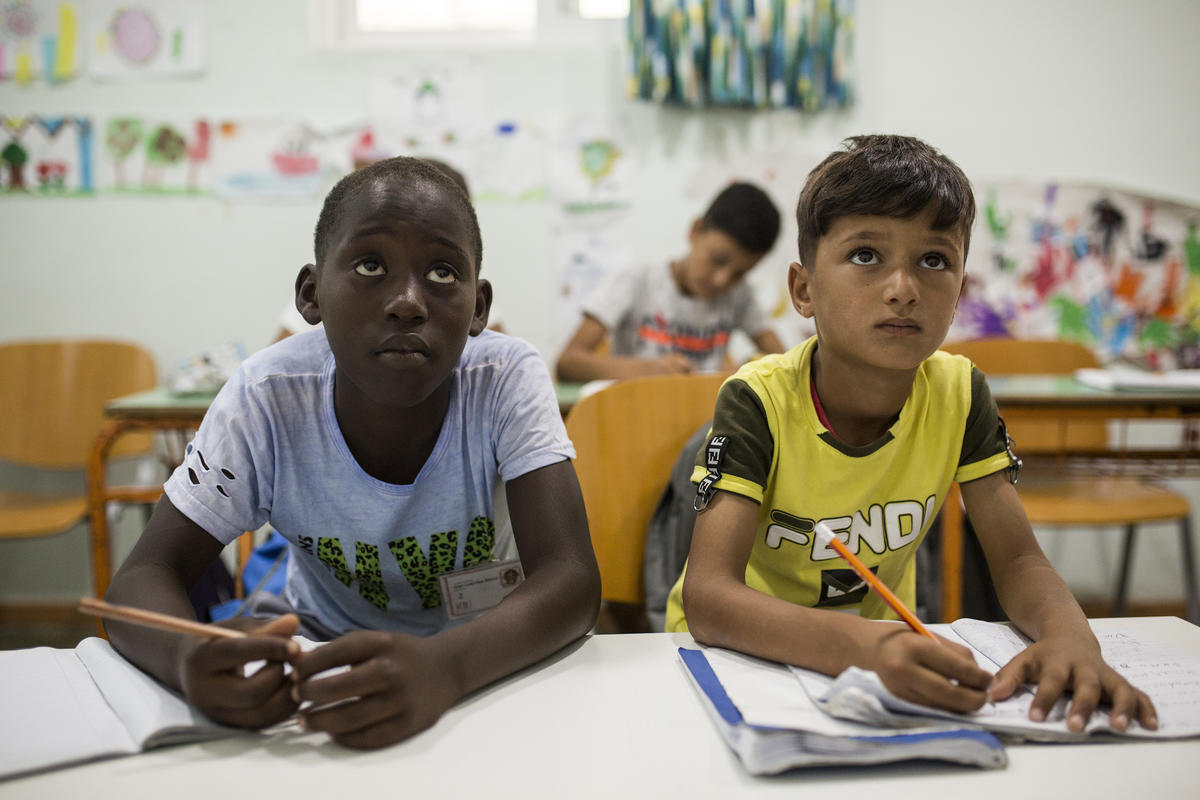Kosovo Crisis Update
Kosovo Crisis Update
The Exodus
As the humanitarian crisis in Kosovo continued to deepen, tens of thousands of refugees flooded into Albania Monday and Tuesday, many reporting atrocity stories of summary execution and torture.
UNHCR field staff said at least 25,000 Kosovars arrived at the main Albanian border point at Morini between Monday and Tuesday mornings and a further 15,000 at the mountain frontier of Qafa Prushit, bringing the estimated total to 262,000.
Virtually every Kosovar arriving at Qafa Prushit came on foot "in very, very bad physical condition" according to field workers, some with reports of widespread atrocities. Though these reports could not be independently verified, refugees interviewed told similar tales of irregulars belonging to the so-called Arkan group unleashing a wave of teror in the Djakovica area of Kosovo.
They said men were both being tortured and even executed in front of their families. There were, in fact, few men crossing the border Monday with the women, children and elderly.
The situation at the crossing itself was extremely tense. Serbian police stationed just opposite the Albanian border post warned journalists they would shoot if the correspondents approached. Aid officials were told to withdraw 500 metres from the crossing.
Morini was again deluged with a wave of humanity. Many people came by car and there was a huge wagon train of vehicles waiting to cross. Others travelled by bus and were dropped off several kilometres from the border and walked to the crossing. The arrivals came from several parts of Kosovo - Pristina, Mitrovica and Glogovac.
Increased supplies of food were reaching the refugees in Albania. A total of 60 metric tons of food was lifted by helicopter and trucks to the main refugee staging point at Kukes.
Four cases of measles were reported among the refugees and vaccines are being shipped into the area immediately to try to contain any larger outbreak.
In Macedonia an estimated 14,000 people had been moved from the chaotic border area into transit centres. About half were accommodated at Brazda and another 7,000 at four tented sites at Radusa, Neprosteno, Bojane and Stankovic, all of which can accommodate additional refugees.
Throughout Monday UNHCR officials and a food convoy were harassed by government officials at Bojane, before NATO officials intervened. There were also continuing difficulties with registration procedures. UNHCR has yet to receive a single registration list or advance notification of when, where and how refugees are being moved from the border area.
That region remained chaotic with at least 65,000 people milling around in muddy, open fields in no-mans land, while the nearby centres remained partially empty.
In Montenegro, an estimated 1,000 refugees arrived Monday in Rozaje from the Kosovo region of Istok after walking for 13 hours. A bridge on the main road from Montenegro to Mitrovica was blown up by NATO airstrikes during the weekend, possibly halting an earlier movement of refugees from that region.
The Istok refugees said military operations began in that region a week earlier and many people had been hiding in nearby woods since then. Shelling began again during the weekend.
Earlier arrivals in Montenegro are now being moved to camping sites on the coast where they are being housed in tents.
Emergency meeting
High Commissioner Sadako Ogata said Tuesday the enforced exodus from Kosovo was a deliberate attempt to "destroy its collective identity." She told an emergency international meeting in Geneva that the expulsion of huge numbers of Kosovars was "forced, planned and directed" which made the crisis "all the more unmanageable and destabilizing."
Mrs. Ogata delivered her remarks to the opening session of the Humanitarian Issues Working Group (HIWG) which was convened to review the crisis and its implications for countries inside and outside the region. Fifty-six nations including Albania, the Federal Republic of Yugoslavia and the FYR of Macedonia attended the one-day session as well as the heads of humanitarian agencies and non-governmental organizations.
The High Commissioner repeated a call she made earlier in the emergency, urging countries beyond Kosovo's immediate neighbours to take in refugees on a temporary basis to help ease the immediate crisis.
Longterm, she said, "Solutions for the overwhelming majority means returning to their homes as soon as possible" backed by a strong international commitment to the stability of Kosovo.
Guidelines
UNHCR issued a set of guidelines and criteria covering temporary refuge as the first officially evacuated refugees left the region. UNHCR said all evacuations had to be on a voluntary basis only, with every effort made to respect family unity and, wherever possible, family reunification in cases where members have been separated during their initial flight. Priority should be given to particularly vulnerable people or those with special needs, though everyone should be medically fit to sustain travel.
Thus far a total of 70,000 places have been made available to Kosovars including 20,000 to Germany and other European Union countries, 20,000 each to the United States and Turkey and 5,000 each to Canada and Norway.
Ninety people left Monday for Norway. Another 1,360 went to Turkey, but UNHCR expressed concern that the majority of these people had not been properly registered before they left. A special UNHCR team was en route to Skopje to handle future refugee registration.




